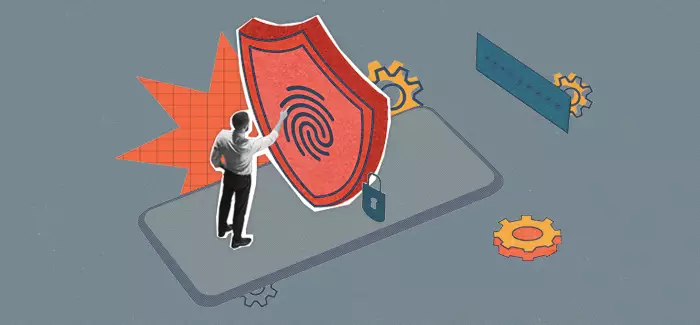Articles > Information Technology > What can you do with an IT degree?
What can you do with an IT degree?
This article was updated on March 15, 2024.

Written by Elizabeth Exline

Reviewed by Kathryn Uhles, MIS, MSP, Dean, College of Business and IT

If you enjoy working with computers and have a knack for problem-solving, an IT degree may be right for you. A degree in information technology can prepare you for a range of positions in the IT and information security fields, some of which may not even exist yet.
Here, we’ll answer the question “What can you do with an information technology degree?” We’ll also explore what an information technology degree encompasses and what kinds of jobs those IT skills can lead to. After all, IT professionals leverage technology to solve problems and improve productivity or optimization, but that’s just the beginning.
Why get an IT degree and pursue a career in information technology?
After earning an IT degree, working in information technology may not bring you fame and glamour, but you will encounter a multitude of opportunities to learn and grow. IT professionals leverage technology to solve problems, improve productivity and manage the digital infrastructures of organizations across virtually all fields.
Even within information technology, a breadth of specializations exists. Prospective IT professionals, for example, can pursue cybersecurity, cloud computing and software engineering (to name just a few) in their quest to help businesses thrive or protect valuable information.
Technology also drives discoveries in science, medicine and even within technology itself. It’s at the forefront of innovation and research in many fields from academia to the pharmaceutical industry.
It’s important to note that careers in information technology aren’t limited to the science, technology, engineering and math (STEM) fields. IT roles exist in almost every industry.
Functionalities such as automation, data analytics, customer relationship management, e-commerce and digital transactions are increasingly essential for businesses, nonprofits and governments to meet the needs of customers and the public. From applications that support greater efficiency to smart equipment that requires advanced computer hardware and software, almost every industry employs IT professionals.
If you’re interested in entering this field, chances are you’re going to need a degree. According to the U.S. Bureau of Labor Statistics (BLS), the majority of information technology jobs typically require an IT degree. Coursework in IT degree programs focuses on providing a generalized foundation of IT knowledge that can be applied across the many disciplines that make up the broad and ever-evolving field of information technology.
Some of the key outcomes of a Bachelor of Science in Information Technology program (BSIT) are:
- Applying key principles of systems analysis and design to selected business processes to implement effective information systems
- Designing selected network and cloud infrastructures to improve organizational network operation
- Designing and developing key database models for storage, retrieval and use of data
- Implementing cybersecurity solutions
- Demonstrating an ability to evaluate, design and implement application programs to meet business processes
Knowing what you can do with an IT degree can help you decide if it’s right for your career interests.
Information technology careers
The IT job market is vast and varied, spanning a range of jobs and industries. According to BLS, an estimated 377,500 openings in computer and information technology employment are projected each year from 2022 to 2032, much faster than the average for all jobs over that same time span.
BLS Occupational Employment Projections, 2022-2032 is published by the U.S. Bureau of Labor Statistics. This data reflects BLS’ projections of national (not local) conditions. These data points are not specific to University of Phoenix students or graduates.
Certain industries, such as healthcare, are known for relying heavily on technology. As noted, however, virtually every industry needs IT specialists, from cutting-edge technology firms to media companies.
Examples of careers in information technology for job seekers with a bachelor’s degree include information systems manager, information technology director, information systems supervisor and more.
BSIT degree programs in general prepare students to pursue various types of IT jobs, including information technology director, information systems supervisor and information technology manager. These roles involve coordinating and overseeing information systems, systems analysis, computer programming and electronic data processing. These IT professionals also help oversee and manage the technology and IT employees in an organization.
Students can often pair their IT degree with a certificate in a specialized area to pursue a wider range of IT career fields. Some of these jobs are software developer, information security analyst or network technician.
Here is a sampling of the information technology career fields that graduates might pursue after earning their degree and a certificate:
- Software development
- Computer programming
- Cloud computing
- Data analytics
- Cybersecurity
- Information systems management
- Computer networking
How do I start a career in information technology?
Your career in IT might begin in a number of ways, but having a passion for tech, obtaining an IT degree and knowing what you want are a good place to start.
Whether you’re looking for an entry-level role or aiming for a more senior job title, each will require a different level of training and experience. Education requirements may vary depending on what the employer is looking for.
Your interests and passions should dictate the path you take. That said, these are some of the most common first steps people take in their information technology careers:
1. Earn a degree in IT. Many IT roles require a bachelor’s degree. In addition to basic undergraduate studies in the field, you may want to explore certain areas of IT in more depth.
2. Research the roles available. Match your interests to relevant jobs by learning about what positions are out there. You can do this through online research and networking with people who work in roles that interest you. This helps you identify the jobs you’d enjoy most and where your interests align with industry needs.
3. Find a mentor. Whether you formally request mentorship from someone working in your ideal job or simply join a professional organization to learn more about the ins and outs of the field, mentorship lets you absorb vital information over time. Observing IT professionals at work and asking questions can help you decide whether the field is right for you.
4. Apply for jobs. An IT degree can give you skills and knowledge you can bring to the job market. In addition, developing a network of contacts through your mentor, education, professional associations and events can help you build relationships that possibly can lead to job opportunities.
Enroll in an IT degree program to pursue a career in information technology
If you choose to pursue an IT degree, you'll find IT careers can be highly rewarding, offering job satisfaction and a good income. Since technology is constantly evolving, there will always be new challenges to tackle and new things to learn. Chances are, you’ll never be bored. And given technology’s rapid pace of change and the projected growth in IT jobs, the field’s future appears promising.
The University of Phoenix online BSIT degree is a flexible program focusing on skills such as business process, cybersecurity and information systems.
For those currently in or looking to enter the IT field, many UOPX IT programs prepare students to sit for industry certification exams with EC-Council and CompTIA. The University offers courses aligned to these exams and provides students with complimentary prep-exam materials to prepare for the exams.
Learn more at University of Phoenix.

An IT degree enables a graduate to confidently pursue a number of professional avenues. It is the credential that goes beyond checking the box of ‘earning a degree’ to offer real, value-added skills to a person’s knowledge base and experience.
Kathryn Uhles, Dean
College of Business and Information Technology at University of Phoenix

ABOUT THE AUTHOR
Elizabeth Exline has been telling stories ever since she won a writing contest in third grade. She's covered design and architecture, travel, lifestyle content and a host of other topics for national, regional, local and brand publications. Additionally, she's worked in content development for Marriott International and manuscript development for a variety of authors.

ABOUT THE REVIEWER
Currently Dean of the College of Business and Information Technology, Kathryn Uhles has served University of Phoenix in a variety of roles since 2006. Prior to joining University of Phoenix, Kathryn taught fifth grade to underprivileged youth in Phoenix.
This article has been vetted by University of Phoenix's editorial advisory committee.
Read more about our editorial process.


Get your free IT Program Guide
Learn how 100% of our IT degree and certificate programs align with career-relevant skills.
Thank you
Download your pdf guide now. Or access the link in our email.

